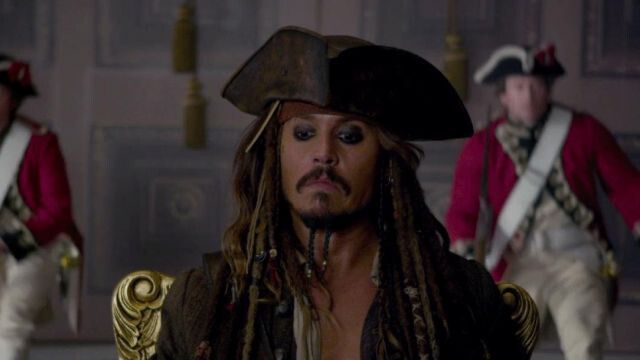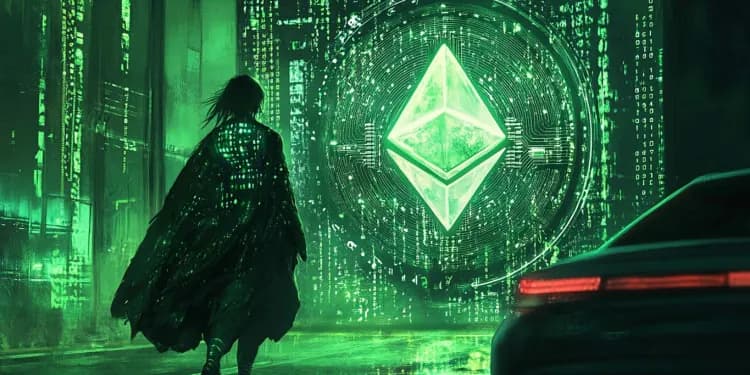I was on a panel for technology and innovation recently and it was dominated by AI. I tried to get ginned up for AI but struggled. It’s personal. I studied Prolog in the 80’s and thought it was the next big thing. It’s taken forty years to get to the point where we are now, so the hyperbole feels a bit stale.
Don’t get me wrong, I think it’s an important technology. Soon to be embedded into everything. It’s just taken a lot longer than intended. What we are seeing now feels like an incremental innovation - not an exponential one, like the Internet or CRISPR. Or, like, Blockchain.
I’m much more excited by Blockchain. It is more exponential to me. And it’s not because of the ardent and very-vocal passion of Bitcoiners or cryptocurrency in general - those are just proof-of-concept. To me, the real innovation is that never before have we had the prospect of un-hackable code running on an un-stoppable computer. The current incarnation of which is best exemplified by Ethereum. Yes, there are plenty of others but they haven’t captured the imagination of as large a developer community nor have they survived as long.
Being on the panel helped me realize my own origin story on this. When I first studied AI, it was not the thought of intelligent machines that got me going; it was the thought of autonomous software agents becoming intelligent enough to do really bigger and better things for humanity.
I was first introduced to ASA or ‘bots’ in the 80s. We could imagine how groundbreaking they might be but didn’t have a mechanism, yet, for how they could have the necessary intelligence, operate independently and unmolested in the world. As for intelligence, that’s where AI came in. Then, In the 90’s, we became fascinated with objects, OOP (Java fed the frenzy), OOD (for persistence), and such ambitious integrations as CORBA - a whole universe of objects (and Bots) that could interact with one another. OpenDoc replaced CORBA and provided a more elegant roadway. And then Apple killed it! I remember being so angry about it that I went over to Windows for the next two decades. I had really bought into the dream of reusable components working together in harmony across ever-increasing and more elaborate systems. Nevertheless, we still didn’t have a truly independent foundation layer. And then came along the commercial Internet.
When I first understood Ethereum - which is different from the first time I came across it; it took me awhile to really appreciate its importance - I saw that it was a missing piece to the ASA puzzle. AI could be codified into smart contracts run on the Internet Computer. And that was exciting to me. But I’ve evolved a bit since the 80s and Bots for Bots sake doesn’t have the allure for me as it once did. Instead, I am much more excited about Code as Law.
Code is Law is supposed to mean that code (and smart contracts) can replace the decision-making and rule execution so that the subjective human judgement element can be eliminated, putting an end to abusing the “law” to protect their interest or manipulate the way societies are governed.
Googling this tells us that it wasn’t the Blockchain that first coined this concept but Laurence Lessig, and he did so long before the advent of Ethereum. Makes sense; he is a true visionary. As for myself, it wasn’t until Ethereum that I groked it.
Perhaps, my time spent studying cooperatives had me primed. I was tired of the endless debates around contract negotiation and liked the elegant multi-tiered structure of some of the most successful cooperatives in the world. I was also captivated by how much of a pure democracy they can be and wondered what would happen if we had a true democracy here in the US? Wouldn’t that be amazing! I was interested in coupling cooperative ownership with open source production / development to align incentives amongst participants in a digital foundry - which is why I set up Shared Experience Art Machine Ltd as a digital cooperative for intellectual property in the UK in 2010.
Anyway, I digress…
I can see the elegant power of smart contracts ruling over us in many if not most of the small decisions that we must make will reduce friction, increase economic activity, and boost innovation. Reducing optionality can sometimes be very powerful and even safer for us. It reminds me of the original “Day the Earth Stood Still” in which the alien explains to earthlings that his society used to be a lot like ours, warring with each other all the time, until they created Gort - a mob of robots more powerful than themselves to police their everyday activities and ensure everlasting peace. This is dream for me of unhackable AI (smart contracts) running on an unstoppable computer.
For extra credit, I have invoked Gort a few other times on this forum here and here.
So, let me pause here and say, “Code is Law” is the reason why Blockchain is such an exponential technological innovation. Cryptocurrency is a byproduct of this; it’s the low-hanging fruit and our first test case scenario.
I have no doubt that we will all be using crypto as the underpinning of our global financial structure within a few generations time. Why? Because the Eurodollar banking system is already the most decentralized financial system ever created and Blockchain arrives at a time when it’s starting to show its age and is in need of an overhaul. The benefits that come from the granular control, velocity, and transparency of Blockchain will be acutely felt by all.
But, that’s not the most exciting thing. It’s what comes next. Code is Law allows us to refactor so many of our transactions into trustless operations. This has enormous implications.
That’s what I wanted to say.
The panel wanted some red meat regarding the AI revolution and since there were a lot of family offices in the audience contemplating legacy - and I had Bots on the mind - I gave the following scenario. You are the matriarch/patriarch of a major family office and you don’t want dissolution and rot to set in during subsequent generations, so you craft a bunch of legal structures (trusts) and contracts (governance) for how the wealth should be administered, how members of each younger generation should be co-opted into the dream, and how the legacy should perform. Yet, you know from your own life experience that trust can be busted, trustees are only human, and governance can be perverted, or, indeed, that there simply can be unintended consequences from the best of intentions.
Now, you have an alternative. You can have AI train itself on you while you are alive - learning everything about your writing style, vocal style, decision-making, belief system, negotiation skills, etc. Then, you can create a human avatar to animate the AI - as your digital twin - and then give it power of attorney when you die. That way, you can run the family office from beyond the grave into infinity and beyond!
Bots and Blockchain are going to give us a lot to think about. The future is coming faster than you think.

